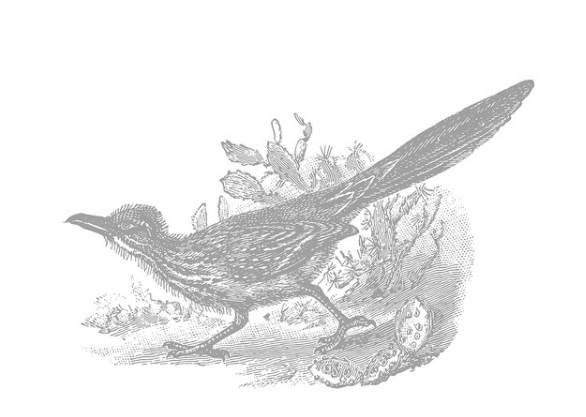Roadrunning


A genius for our moment: “For over a decade, a Chinese woman known as ‘Zhemao’ created a massive, fantastical, and largely fictional alternate history of late Medieval Russia on Chinese Wikipedia, writing millions of words about entirely made-up political figures, massive (and fake) silver mines, and pivotal battles that never actually happened. She even went so far as to concoct details about things like currency and eating utensils.”
Walter Kirn: “Fun — when your rulers would rather you not have it, and when the agents of social programming insist on stirring nonstop apprehension over the current crisis and the next one, the better to keep you submissive and in suspense — is elementally subversive. Fun is ideologically neutral, advancing and empowering no cause. Fun is self-serving and without ambition. It wishes only to be. It produces nothing for the collective and may represent a withdrawal from the collective, temporarily at least. Your fun belongs to you alone.”
As Bach demonstrated, teaching is an ability that decays very late in life, a principal exception to the general pattern of professional decline over time. A study in The Journal of Higher Education showed that the oldest college professors in disciplines requiring a large store of fixed knowledge, specifically the humanities, tended to get evaluated most positively by students. This probably explains the professional longevity of college professors, three-quarters of whom plan to retire after age 65—more than half of them after 70, and some 15 percent of them after 80. (The average American retires at 61.) One day, during my first year as a professor, I asked a colleague in his late 60s whether he’d ever considered retiring. He laughed, and told me he was more likely to leave his office horizontally than vertically.…
Relevant to me! Brooks goes on, later in the essay,
What I need to do, in effect, is stop seeing my life as a canvas to fill, and start seeing it more as a block of marble to chip away at and shape something out of. I need a reverse bucket list. My goal for each year of the rest of my life should be to throw out things, obligations, and relationships until I can clearly see my refined self in its best form.
I’m not sure I agree that such subtraction should be an intentional goal; I tend to think of it more in terms of understanding what you must do and what you can discard if you wish. Certain family circumstances have made it impossible for me to travel lately, which has meant turning down invitations to speak -- but then after a while I realized that (a) I have always hated public speaking and (b) I am not required to do it. So I retired from it -- except for ongoing participation in the life of my beloved Laity Lodge -- and I couldn’t be happier about that. Realizing that I don’t have to speak in public if I don’t want to made me feel like this guy.
Now, I still love teaching -- but then, for one thing, teaching is not only speaking; speaking is but a part of a more complex connection; you’re speaking with people you can quickly come to know. Much different than lecturing to strangers.
But as uncomfortable as I am with lecturing to strangers, I am, these days, even more uncomfortable with getting on an airplane. And because I don’t have to get on planes I enjoy doing things like googling “why is flying so terrible” -- which yields article after article after article of anger and complaint. Not encouraging.
Last December I visited my friends at the Institute for Advanced Studies in Culture at the University of Virginia, and I drove there and back. Two days each way. Often along the way I thought about how much faster an air voyage would have been ... but I got to see a lot of this big country. I had time to think. I got out and walked around when I wanted to. I didn’t have to rent a car when I arrived -- always a harrowing experience. Let’s see how long I can avoid getting on an airplane. I’m gonna become a road warrior, emphasis on road. A bit of a challenge when you live in the middle of Texas....

On my blog, I wrote about
- re-reading David Halberstam’s The Best and the Brightest
- three habits of the American mind that go back to the Civil War
- a conservative movement with too many sheepdogs and not enough shepherds
And other stuff, too, of course. And don’t forget the photos at my micro.blog page.